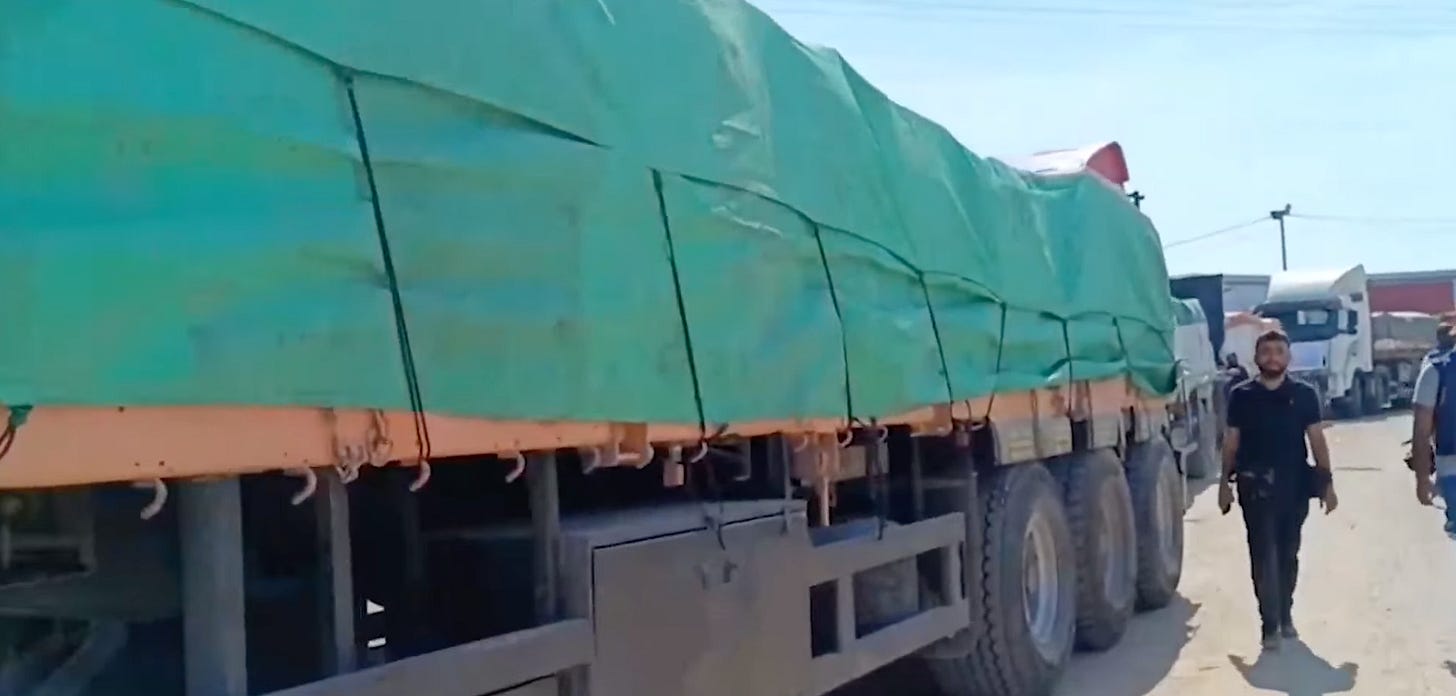A shocking revelation has emerged about the security arrangements at Gaza humanitarian aid distribution sites, where members of an anti-Islamic American motorcycle gang have been placed in charge of protecting operations that have already resulted in hundreds of Palestinian casualties.
Modern-Day Crusaders Guard Humanitarian Operations
The BBC investigation uncovered that UG Solutions, a North Carolina-based private security contractor, has recruited at least 40 members of the Infidels Motorcycle Club from its total workforce of approximately 320 personnel in Gaza. These sites, operated by the Gaza Humanitarian Foundation (GHF) with backing from Israel and the United States, have become flashpoints where over 1,100 civilians, including many children, have been killed while seeking food since operations began in late May.
The Infidels MC, founded in 2006 by Iraq War veterans, openly brands itself as a modern crusading force, adopting imagery from the medieval Christian campaigns against Muslim territories. The gang's symbol features a cross—a deliberate reference to the historical conflicts between Christians and Muslims over control of Jerusalem.
"Entrusting the Infidels biker club with delivering humanitarian assistance in Gaza is akin to appointing the KKK to oversee humanitarian efforts in Sudan. It is utterly nonsensical."
Edward Ahmed Mitchell, deputy director of the Council on American-Islamic Relations (CAIR), emphasized that such appointments are likely to incite violence, which has already manifested in Gaza.
Gang Leadership Controls Security Operations
The investigation identified Johnny "Taz" Mulford, the Infidels MC leader, as the head of security operations in Gaza. Seven additional gang members hold senior positions overseeing the controversial aid sites. Mulford inadvertently exposed his operation when he accidentally included BBC reporters in an email instructing fellow gang members not to respond to media inquiries, revealing names and email addresses of Infidels MC members working in Gaza.
Team leader Josh Miller was photographed holding a banner reading "Make Gaza Great Again" and operating a company selling clothing with slogans promoting violence. Both Mulford and Miller display Crusader-themed tattoos, including the number "1095," which marks the year Pope Urban II launched the First Crusade.
Inflammatory Anti-Islamic Activities
The gang has actively promoted anti-Muslim sentiment through various provocative actions. The Infidels MC organized a pig roast specifically "in defiance of" Ramadan, the Islamic holy month, and continues posting Islamophobic content on social media platforms. Their Facebook recruitment posts sought veterans who "can shoot, move, and communicate" for deployment to Gaza, offering daily compensation ranging from $980 to $1,580 depending on roles.
The term "infidel" itself derives from the Arabic word "kafir," used to describe non-believers in Islam, making the gang's name inherently provocative in the context of securing aid for a predominantly Muslim population.
Deadly Consequences at Aid Sites
The humanitarian sites under Infidels MC security have become scenes of unprecedented civilian casualties. United Nations reports attribute most of the 1,100+ deaths to Israeli security forces, with incidents currently under investigation by the Israeli military. The combination of armed gang members with documented anti-Islamic bias overseeing aid distribution to desperate Palestinians has created a powder keg situation.
UG Solutions defended its hiring practices, stating it does not screen candidates based on "personal hobbies or affiliations unrelated to job performance". However, the Gaza Humanitarian Foundation responded by emphasizing its "zero-tolerance policy for any hateful, discriminatory biases or conduct". It confirmed that Mulford "has not been involved with GHF since August" while actively reviewing additional allegations.
International Condemnation Mounts
The revelation has sparked widespread condemnation from civil rights organizations and Middle Eastern advocacy groups. CAIR officials described the arrangement as demonstrating a fundamental disconnect between humanitarian principles and operational reality. The situation exemplifies broader concerns about the militarization of humanitarian aid and the potential for religious and cultural biases to undermine relief efforts.
The controversy surrounding anti-Islamic extremists controlling access to aid for Palestinian civilians represents a significant diplomatic and humanitarian crisis, raising questions about oversight mechanisms for private security contractors in conflict zones and the vetting processes for personnel involved in sensitive humanitarian operations.



